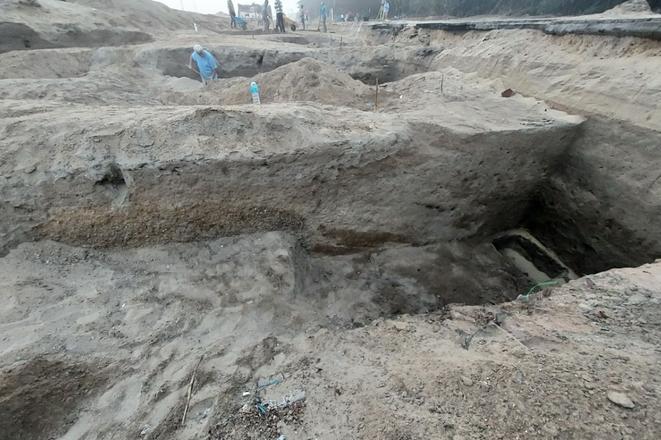A group of Slovak and Polish researchers have spent the past few weeks in Egypt surveying an archaeological site known as Tell-el-Retaba for the thirteenth time.
This month, they have studied the westernmost edge of the settlement hill (tell), which used to flood regularly in the past. Researchers have now discovered a unique moat.
The first joint research by Slovak and Polish experts began on the site, which is situated north-east of Cairo, in 2007.
Moat protected pharaoh
The moat is believed to have protected the fortress of Pharaoh Ramesses III.
“Three cuts helped us determine that the moat flanks the western wall of the ruler’s fortification at a distance of 20 metres,” said Egyptologist Jozef Hudec from the Slovak Academy of Sciences (SAV).
The pharaoh was murdered by conspirators in his own harem.
The ancient Egyptians dug the moat about 160 cm deep into the gravel bed. The expert added that the slope of the moat wall was very steep.
“Attackers probably needed ladders to get out of this trap,” said Hudec. “Ancient reliefs prove that attackers usually came with ladders.”
The discovered moat did not even have to be connected to a water source. The Egyptologists discovered groundwater during their research.
“The current groundwater level may not correspond to the ancient one,” pointed out Hudec.
Visualisation
The archaeological research in this area was not of interest to Slovak experts at first. Initially, they wanted to focus on the Beni Salama site in Wadi El Natrun, northern Egypt. In the meantime, however, it was occupied by other teams of Egyptologists. Other locations were too weathered or too large for the financial possibilities of Eastern European countries, and they ended up in Tell el-Retaba.
A few years ago, Slovak Egyptologists and archaeologists managed to uncover two more fortress walls here. Inside the fortress, they discovered a massive building made of bricks, too.
In 2019, they presented a 3D visualisation of how the settlement may have looked back in the day.



 A moat discovered by Slovak and Polish archaeologists and egyptologists in Egypt in November 2023. (source: SAV)
A moat discovered by Slovak and Polish archaeologists and egyptologists in Egypt in November 2023. (source: SAV)